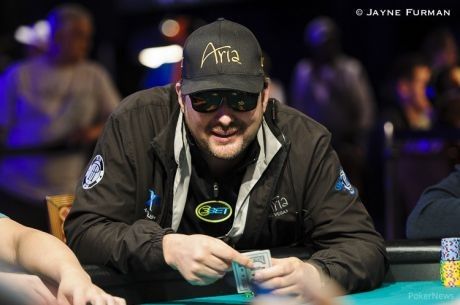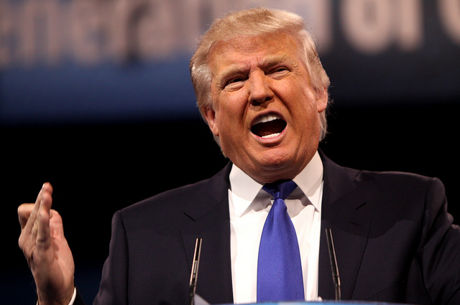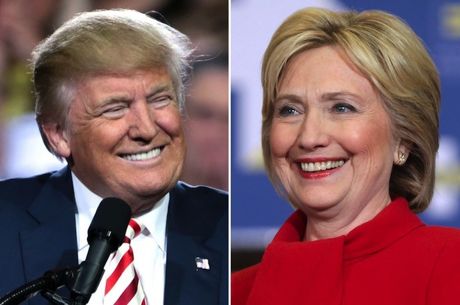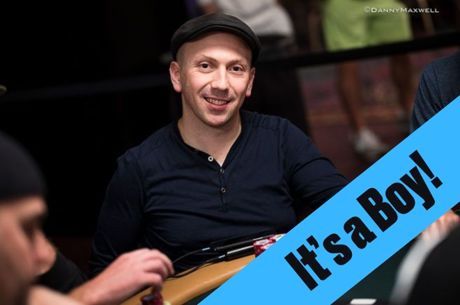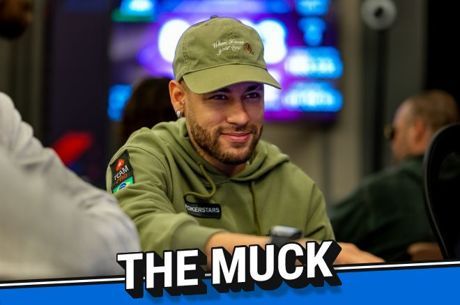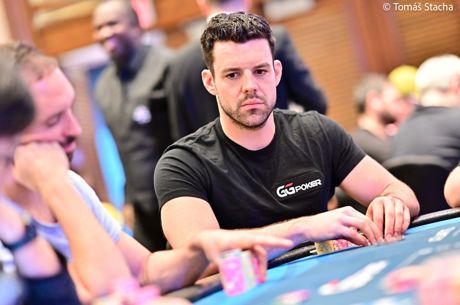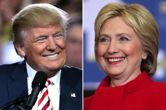Clinton vs. Trump: Viewing the Presidential Election as a Poker Game
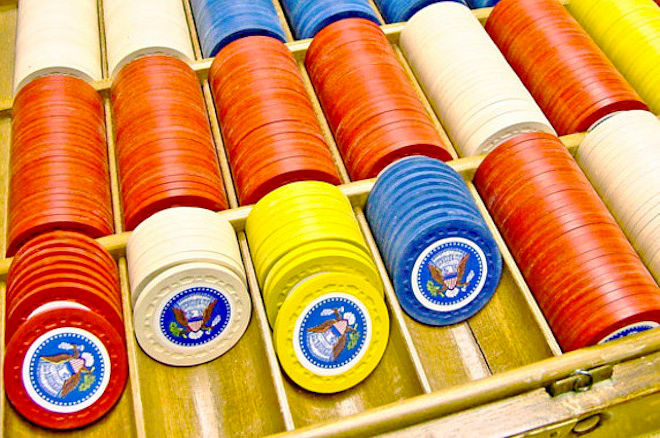
It's not uncommon to describe politics in terms of poker, especially when discussing campaigns and the strategies candidates employ when trying to win elections.
Like poker, an election is a "zero-sum" game in which each vote gained by one candidate represents one lost by another. If you think about it, nearly every "move" made in a campaign could be said to suggest a similar strategy from poker.
Like poker players, candidates are working to establish their credibility, building (and exploiting) their images, making reads of their opponents' strength and/or weakness and weighing risks versus rewards. We also see a lot of what might be called "angle-shooting" in campaigns and a whole lot of bluffing, too.
Tomorrow is Election Day and the race for the presidency between the Democratic Party's nominee Hillary Clinton and the Republican Party's candidate Donald Trump has perhaps been the most contentious the United States has ever seen. The campaigns have also occasionally confounded the pundits in their efforts to explain and analyze candidates' strategies and predict what might happen tomorrow.
Throughout the campaign, there have been many examples of observers using poker analogies to try to explain what we've been witnessing over the last year as the major parties settled on their nominees and afterwards during the general election. In some cases poker pros have been called upon by non-poker outlets to offer their insight as well.
With the election now less than 24 hours away, here are a few of the more talked-about examples of the race for president having been cast as a poker game.
Using poker to discover a "method to the madness"
In late January, Alex Altman of Time magazine tried to show "How Poker Explains Trump's Campaign," singling out Trump from his fellow G.O.P. hopefuls as "the best poker player in the Republican field."
Altman probably overstated the extent to which "Trump's political instincts are ripped from the poker player's handbook," though he nonetheless made some interesting applications of poker strategy to the Trump campaign.
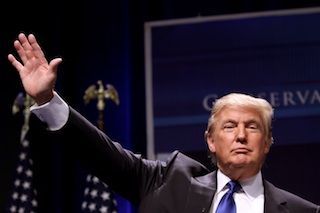
Explaining how being unpredictable in poker can cause opponents problems, making it hard for them to settle on an adequate strategic response, Altman noted how "Trump presents a similar problem for his political rivals," since "his erratic behavior makes it difficult for opponents to formulate a plan of attack." Even though in Altman's view "Trump's campaign seems guided more by emotion than reason," he was convinced that "clearly there's a method to the madness."
Altman also commended Trump for being the most aggressive of the Republican nominees — a good approach in poker, too — a style highlighted by his attacks on Jeb Bush and Ted Cruz.
Other points made by Altman when writing nine months ago perhaps seem less persuasive today. His suggestion that Trump was doing well to "play in position" and being able not to "commit chips to an issue when he doesn't sense an advantage" didn't always seem to characterize the nominee later in the campaign.
Altman also commended Trump for "know[ing] when to change speeds" and "soften[ing] his tone when it suits him," changing his style much like a poker player might adapt to table conditions — another strategy inconsistently demonstrated later on in the campaign.
"Trump, the ultimate 'loose-aggressive' player"
In late February, Jeremy Greenfield of The Street called on 14-time World Series of Poker bracelet winner Phil Hellmuth to address ways the other GOP candidates might be able to catch the current front-runner in "How Do You Beat Donald Trump? We Asked a Poker Champion."
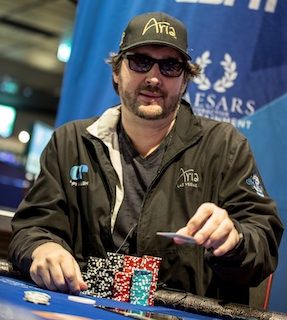
"Trump is the ultimate 'loose-aggressive' player," suggested Hellmuth, controlling the table with his frequent "raises" and constant challenges to others to play back at him. Hellmuth advised others to let Trump win the small pots (so to speak) and wait to find a strong "hand" with which to win a much bigger, substantial pot against him.
"When you're playing against a loose-aggressive player, think of a harpoon," said Hellmuth. "You nail them with a harpoon on one big pot for all their chips. They're a big target... and Trump is a big target."
Besides employing patience, Hellmuth further advised Trump's challengers to ramp up the aggression themselves (though in a disciplined way), such as Marco Rubio managed to do in one of the debates when attacking Trump on a variety of fronts.
Such tactics were making slight inroads for the other GOP nominees, though it was clear even then that Trump still had most of the party's chips.
"Trump has changed the rules of the game," said Hellmuth.
Speaker Ryan's short-stacked dilemma
After Trump earned the nomination, Jason Tanz of Wired took a similar approach when analyzing the Republican party's inner turmoil, in particular the conflict between Trump and Speaker of the House Paul Ryan.
In "How Should Paul Ryan Handle Trump? We Asked a Poker Pro," Tanz called on Annie Duke for some poker-related strategic commentary, despite Duke's absence from poker over the last several years. She again stressed Trump's aggression when describing his tête-à-tête with Ryan, characterizing the Speaker's contrasting style as a "weak" or middle-of-the-road strategy that wasn't necessarily effective.
Paraphrasing Duke, Tanz described Ryan as "short-stacked" in terms of his political capital when taking on Trump back in August, which meant if he were to go ahead and withdraw his endorsement of the party's candidate, he wouldn't gain as much as he might have earlier — say, before the convention.
"If he backs away from Trump, he won't get as much credit for bravery," writes Tanz.
Tanz would revisit the same topic again in early October. In the article "Poker Explains Why the GOP Can't Fold on Trump," he used the analogy of being "pot committed" to explain why the Republican party's options were limited when it came to sticking with their nominee.
Negreanu on heads-up strategy in the Clinton-Trump debates
As the general election heated up and the debates between Clinton and Trump began in late September, Wired once more turned to poker to address candidates' possible approaches to the "heads-up" portion of the campaign in "A Poker Pro's Debate Strategy for Clinton and Trump."
Daniel Negreanu was the pro called on this time, like Hellmuth a Poker Hall of Famer and currently the leader of the all-time money list in tournaments. In his comments, Negreanu alluded to the difference between heads-up strategy and playing against a table full of players, such as was the case (especially for Trump) during the primaries. He also suggested Clinton might try to trap Trump by bringing up topics that could prompt him into playing a sub-optimal game.
"The key is, she has to hit him where it hurts so he gets off-track and reckless," recommended Negreanu. "Then she can just sit back and say, 'See?'"
Robert Woolley explored a similar idea recently here on PokerNews in his article "Poker Strategy, as Taught by the Presidential Campaign." There he focused on other missteps by Trump during the campaign and how Clinton's response was simply to let them play out rather than get involved.
Woolley likened the strategy to dealing with a weak, undisciplined player by simply playing straightforwardly and avoiding fancy moves.
"You take the money from this kind of player by being solid, conservative, boring," he explains. "You should call him much more often than you would other types of opponents, while rarely taking the leads with bets and raises. By this strategem, you give him all the rope he needs to hang himself."
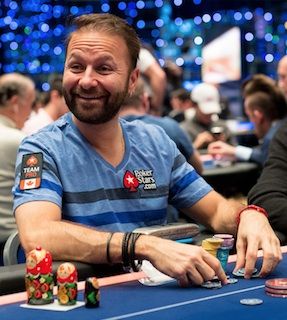
In his debate advice, Negreanu similarly suggested Clinton might wish to be patient and let Trump make mistakes from which she could profit. That said, Negreanu also recognized Clinton couldn't simply sit back and wait for "good hands" to come along.
"If your opponent's not screwing up, you've got to force him to," he noted, adding, "She may have to let down her guard a little."
He also suggested Trump could do well by switching up his style and being less aggressive.
"If he shows up presidential and relaxed and she's unable to shake him, he wins," said Negreanu.
Probably the most cogent of Negreanu's observations had to do with the candidates' need to adapt to what the other "player" is doing, responding appropriately as the "game" conditions changed, as illustrated by Negreanu's characterization of the three-debate sequence.
"The first debate should be a feeler debate, a chance for both candidates to see how it goes, look at the polling and pundits and adjust for the second debate. If you're doing poorly after both of the first debates, then No. 3 is the time to go all in."
Clinton and Trump's tells exposed
Last week Esquire again called on Negreanu for some insight in an article titled "A Poker Champ Identifies Clinton and Trump's Tells." Writer J.R. Havlan specifically called on Negreanu to help characterize each candidate's campaign styles in poker terms.
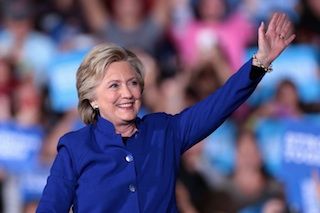
Negreanu again highlighted Trump's "loose-aggressive" approach while explaining Clinton's contrasting approach to be "extremely tight and extremely conservative" in terms of chances taken during the campaign.
Regarding the subject of "tells," Negreanu noted how Clinton has a more consistent "poker face" than Trump, being "a lot more practiced and polished, so when she puts on a fake smile I can tell when it's fake, and often it is." Meanwhile Trump "is a lot more loose and obvious with his facial expressions."
That said, according to Negreanu, "Trump doesn't have significant tells when he's lying because truth and lies to him are kind of homogenized. He's such a pro at it that you don't see a lot of divergence in his body language when he's lying or telling the truth."
Conclusion
Poker and presidential politics have always gone hand-in-hand, perhaps in part because so many U.S. presidents were themselves poker players. That photo up above, by the way, is of a poker set owned by the avid poker-playing president Harry Truman, with chips featuring the presidential seal.
Besides knowing poker, Truman knew something about close, contentious campaigns for president, narrowly defeating Thomas E. Dewey in 1948 in a race so close the Chicago Daily Tribune infamously declared Dewey the winner prematurely.
We might suggest another poker analogy here on the eve of the election, one that all voters can probably agree upon, regardless of which candidate they are supporting.
This presidential campaign has been one long grind, testing the patience of even the most level-headed among us.
Photos: "Donald Trump”, Gage Skidmore CC BY-SA 2.0; "Hillary Clinton”, Gage Skidmore CC BY-SA 2.0.

